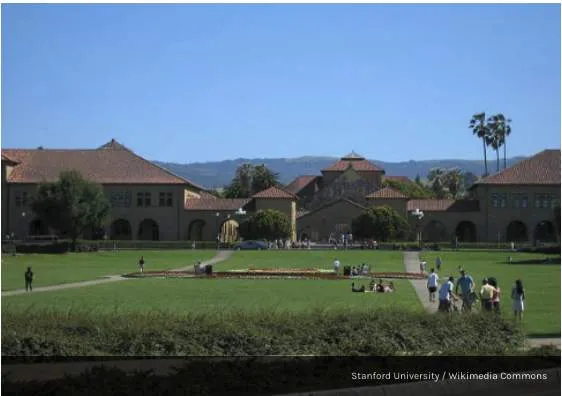(Washington Free Beacon) Hours after Stanford University apologized to Fifth Circuit appellate judge Kyle Duncan for the disruption of his talk last week, administrators encouraged members of the law school’s Federalist Society chapter, which sponsored Duncan’s visit, to “reach out” to the same administrators—including the diversity dean—who aided and abetted the melee.
Leaders of the Stanford Federalist Society received an email Saturday night from acting associate dean of students Jeanne Merino, who stood by silently as students disrupted Duncan’s talk. Merino pointed them to “resources that you can use right now to support your safety and mental health”—and discouraged them from tweeting about the event “until this news cycle winds down.”
Among the resources Merino to which pointed them was Associate Dean of Diversity, Equity, and Inclusion Tirien Steinbach, who took the podium from Duncan to talk about the “harm” he’d caused—and whom Stanford condemned in its apology to Duncan, characterizing Steinbach’s intervention as “inappropriate.”
In addition to Steinbach, Merino listed herself, Associate Director of Student Affairs Holly Parrish, and Student Affairs Program Coordinator Megan Brown as possible sources of “support.” All three watched in silence as protesters accosted Duncan and berated their peers for inviting him.
Merino went on to discourage the Federalist Society from tweeting about the disruption “until this news cycle winds down,” stating that “trolls are looking for a fight.” That warning came after Stanford endured a brutal 24 hours on social media, with numerous lawyers—including Duncan himself—calling for Steinbach to be fired and the protesters punished.
Merino did not respond to a request for comment.
The email raises questions about the sincerity of Stanford’s apology, which was signed both by the university’s president, Marc Tessier-Lavigne—who is himself under fire for allegedly falsifying data while working at Genentech, his previous employer—and the law school’s dean, Jenny Martinez.
The apology, delivered to Duncan two days after his aborted talk, said the protesters violated university policy, which “staff members … should have enforced” and acknowledged that Steinbach had “intervened in inappropriate ways that are not aligned with the university’s commitment to free speech.”
Though Stanford said it was “taking steps to ensure that something like this does not happen again,” it did not commit to disciplining the protesters or sanctioning the staffers who abetted them.
The apology followed a mealy-mouthed statement by Martinez lamenting that the event “went awry.”
The student activists appear unchastened. They slammed Stanford for throwing “its capable and compassionate administrators” under the bus, according to an email sent to a mailing list for the Stanford chapter of the National Lawyers Guild. There, board members of the chapter, which helped organize the protest, praised “every single person” who disrupted Duncan, characterizing the protesters’ conduct as “Stanford Law School at its best.”
The guild stands “in support of confronting judicial architects of systems of oppression with social consequences for their actions,” the group wrote, implying that it would disrupt any other conservative speaker who spoke at Stanford.
“The law school cannot have a culture where LGBTQ+ students, especially queer and trans [people of color], ‘share a sense of belonging and respect’ if speakers like Judge Duncan are normalized on our campus,” the guild’s email read. “Stanford can accede to the Federalist Society’s interest in the outcome of this event (namely, that such generative protests not be allowed to happen again), or it can further its supposed commitment to belongingness. It cannot do both.”






